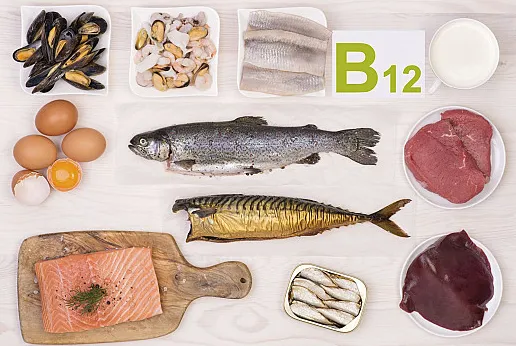Unraveling the Link Between Stress and Weight Gain

Stress is a powerful force that influences many aspects of our health, including our weight. Many individuals unknowingly link emotional and psychological stress to overeating, cravings, and weight gain. The connection between stress and weight gain can be attributed to various physiological and psychological factors. By understanding how stress impacts the body, individuals can develop strategies to manage stress and maintain a healthy weight.
How Stress Contributes to Weight Gain
When we experience stress, the body enters a “fight-or-flight” mode, triggering the release of stress hormones, particularly cortisol. Cortisol is known as the “stress hormone” because it plays a crucial role in managing stress responses. However, prolonged periods of stress can lead to elevated levels of cortisol, which in turn can lead to weight gain.
Cortisol increases appetite, particularly for foods that are high in sugar and fat. This is because the body craves comfort food during stressful periods, seeking to boost serotonin levels and create a temporary sense of relief. The excessive consumption of these calorie-dense foods leads to an increase in overall caloric intake, contributing to weight gain.
Additionally, stress can influence metabolism. High levels of cortisol are linked to insulin resistance, which can lead to the body storing excess fat, especially around the abdomen. This visceral fat, often referred to as "belly fat," is associated with various health risks, including heart disease and diabetes.
Behavioral Effects of Stress on Weight Gain
Stress also affects behavior in ways that contribute to weight gain. Stress can disrupt sleep patterns, leading to poor-quality sleep, which further exacerbates the effects of cortisol on appetite and metabolism. Sleep deprivation increases the production of ghrelin, a hormone that stimulates hunger, while reducing leptin, a hormone that signals fullness. This imbalance can lead to overeating, particularly late at night when stress levels are higher.
Stress can also result in emotional eating, where individuals turn to food for comfort or as a coping mechanism. The act of eating can temporarily relieve feelings of anxiety or sadness, reinforcing the cycle of stress and overeating. Over time, this pattern can lead to weight gain and difficulty in managing stress without food.
Strategies for Managing Stress to Prevent Weight Gain
Fortunately, there are effective ways to manage stress and its impact on weight gain. Regular physical activity, such as walking, yoga, or strength training, can help reduce cortisol levels and improve overall mood. Mindfulness practices, including meditation and deep breathing exercises, have been shown to lower stress and improve mental clarity. Additionally, getting enough sleep and maintaining a balanced diet rich in whole foods can help regulate hormones and prevent cravings.
Therapeutic approaches, such as cognitive-behavioral therapy (CBT), can also be useful in addressing emotional eating and stress-related behaviors. By learning how to manage stress in healthier ways, individuals can prevent the cycle of stress and weight gain from becoming a long-term issue.
Conclusion
The relationship between stress and weight gain is complex, but by understanding how stress affects the body, individuals can take proactive steps to manage their health. Stress reduction techniques, healthier eating habits, and regular physical activity are essential for breaking the cycle of stress and weight gain, allowing individuals to lead healthier, more balanced lives.
Recommended Companies and Websites:
1. Mayo Clinic - https://www.mayoclinic.org
2. American Psychological Association - https://www.apa.org
3. National Institute of Mental Health - https://www.nimh.nih.gov
4. WebMD - https://www.webmd.com
5. Healthline - https://www.healthline.com
6. Mindful - https://www.meditationmind.com
7. Precision Nutrition - https://www.precisionnutrition.com
8. Anxiety and Depression Association of America - https://adaa.org
9. Stress.org - https://www.stress.org
10. Verywell Fit - https://www.verywellfit.com
HTML Table Comparison:
<table style="border: 1px solid #dcdcdc; background-color: #f7f7f7; border-collapse: collapse;">
<tr style="background-color: #e0f7fa;">
<th style="padding: 8px; text-align: left;">Method</th>
<th style="padding: 8px; text-align: left;">Effectiveness</th>
<th style="padding: 8px; text-align: left;">Time Commitment</th>
<th style="padding: 8px; text-align: left;">Cost</th>
</tr>
<tr>
<td style="padding: 8px;">Physical Activity (e.g., yoga, walking)</td>
<td style="padding: 8px;">Highly effective for stress management</td>
<td style="padding: 8px;">30-60 minutes per session</td>
<td style="padding: 8px;">Low (gym membership or free outdoor activity)</td>
</tr>
<tr>
<td style="padding: 8px;">Meditation</td>
<td style="padding: 8px;">Effective for reducing stress and anxiety</td>
<td style="padding: 8px;">10-30 minutes per session</td>
<td style="padding: 8px;">Free (or app subscription)</td>
</tr>
<tr>
<td style="padding: 8px;">Cognitive Behavioral Therapy (CBT)</td>
<td style="padding: 8px;">Very effective for addressing emotional eating and stress behaviors</td>
<td style="padding: 8px;">Varies (weekly sessions for several weeks)</td>
<td style="padding: 8px;">Moderate (therapy fees)</td>
</tr>
<tr>
<td style="padding: 8px;">Adequate Sleep</td>
<td style="padding: 8px;">Crucial for stress management</td>
<td style="padding: 8px;">7-9 hours per night</td>
<td style="padding: 8px;">Low (just good sleep hygiene)</td>
</tr>
</table>






